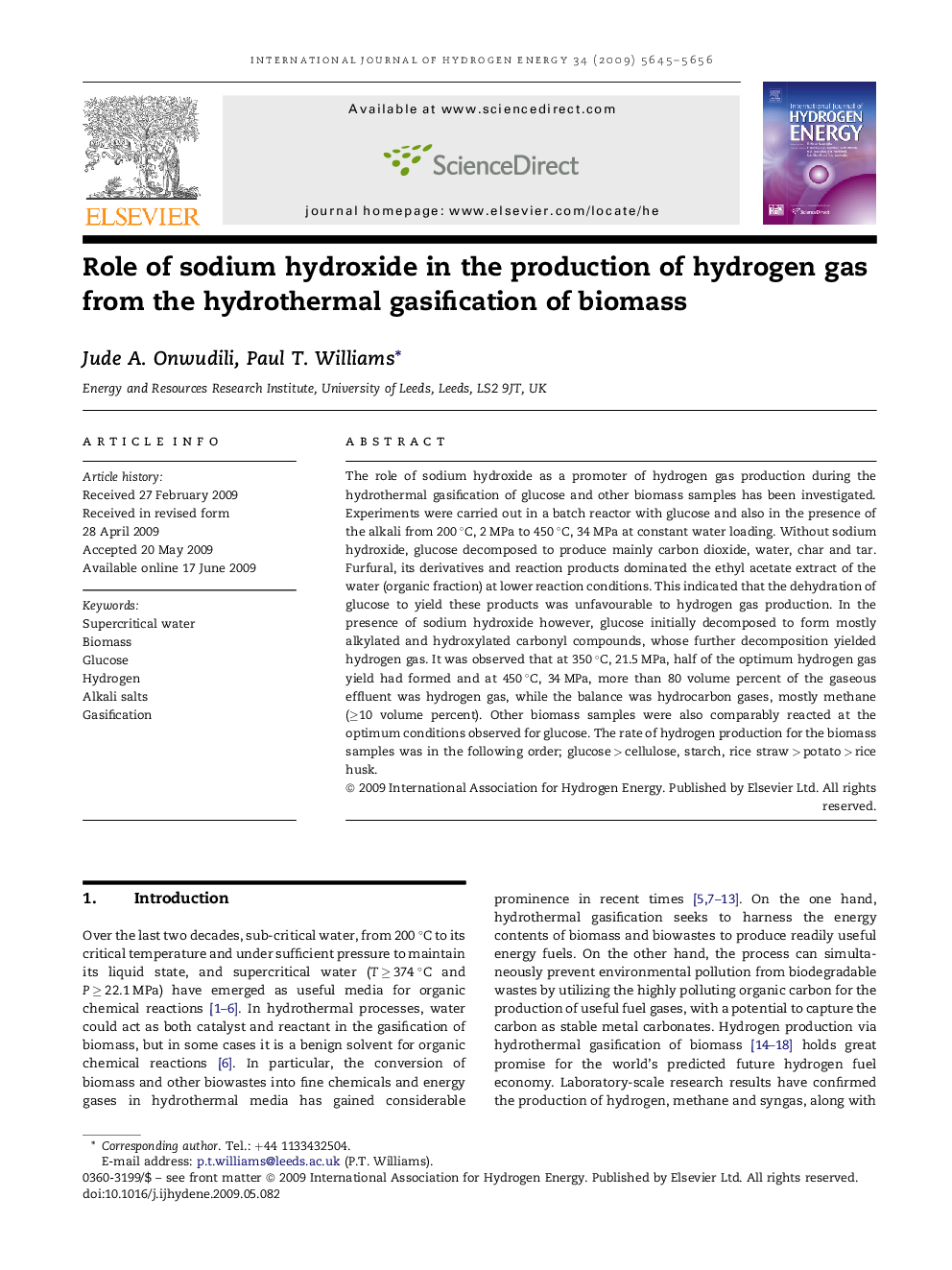| Article ID | Journal | Published Year | Pages | File Type |
|---|---|---|---|---|
| 1273691 | International Journal of Hydrogen Energy | 2009 | 12 Pages |
The role of sodium hydroxide as a promoter of hydrogen gas production during the hydrothermal gasification of glucose and other biomass samples has been investigated. Experiments were carried out in a batch reactor with glucose and also in the presence of the alkali from 200 °C, 2 MPa to 450 °C, 34 MPa at constant water loading. Without sodium hydroxide, glucose decomposed to produce mainly carbon dioxide, water, char and tar. Furfural, its derivatives and reaction products dominated the ethyl acetate extract of the water (organic fraction) at lower reaction conditions. This indicated that the dehydration of glucose to yield these products was unfavourable to hydrogen gas production. In the presence of sodium hydroxide however, glucose initially decomposed to form mostly alkylated and hydroxylated carbonyl compounds, whose further decomposition yielded hydrogen gas. It was observed that at 350 °C, 21.5 MPa, half of the optimum hydrogen gas yield had formed and at 450 °C, 34 MPa, more than 80 volume percent of the gaseous effluent was hydrogen gas, while the balance was hydrocarbon gases, mostly methane (≥10 volume percent). Other biomass samples were also comparably reacted at the optimum conditions observed for glucose. The rate of hydrogen production for the biomass samples was in the following order; glucose > cellulose, starch, rice straw > potato > rice husk.
